No one would think people who live in an area rich in natural resources would have a problem getting water. But for many years, struggling to find fresh water was a way of life in Meagama Village in Papua, Indonesia’s largest province.
Longstanding agreements with other villages limited the sources where each community could draw water. For the villagers of Meagama, accessing water meant a two-hour journey on foot. Because they usually used a bucket to transport their water, obtaining enough water to meet their needs often required several trips.
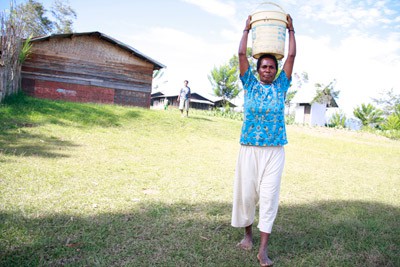
But the difficulties didn’t stop there; the water the Meagama people put so much effort into getting actually caused them harm.
People often got diarrhea and other digestive problems whenever they drank the water. They also suffered skin diseases because of the poor quality of the water.
Sick people would go to the doctor and get better, but inevitably they would become ill again when they drank the water. But the people from Meagama had no other choice but to drink the water because they had no other source of water.
After years of struggling to get fresh water, the conditions in Meagama have changed. Since Gunung Susu Student Center opened in Meagama Village in 2009, the entire community has benefited from the addition of a water project at the church.
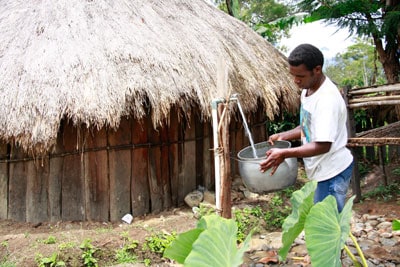
Like other people who come to the church to get water for their daily needs, Delia is very happy because she no longer has to work so hard to find water. She only needs to go to the church.
And other villagers wash their crops at the church before they cook them, instead of bringing their crops to the river, which is quite far away.
People in Meagama Village can take a bath every day. Children can go to the church in the morning and take a bath before they do their chores or go to school. They can drink clean water without having to filter it again, and they can take as much as they need.
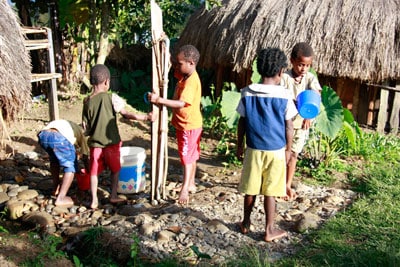
Before this, people didn’t bathe or wash their clothes every day because of their limited water supply. They had to be wise in water usage and give priority to their primary needs, like cooking meals. They only used water for drinking, never for washing anything, so it was rare for them to change or wash their clothes.
The villagers would only clean their bodies if they went to the river. These habits also likely contributed to the frequency of skin disease, diarrhea and other stomach illnesses.
Delia, the mother of a sponsored child, is very thankful because the water project has made a great difference for her family. Before it opened, if Delia’s family needed three or four gallons of water for the day, she had to manage her time so she could travel to the river several times. She had to go early to get water in the morning and then go back later to get more water for the rest of the day’s needs.
And Iperina, a citizens of Meagama, also is thankful for the water project. Even though she and her family are among the beneficiaries who receive support directly from the child development center, the water at the church has affected her life too.
“I am very thankful the water project was established in our village. It is very helpful and enables the community to have new lifestyle.”


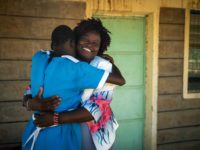
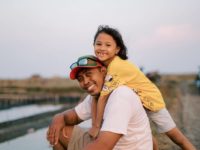
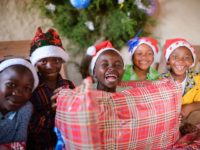


5 Comments |Add a comment
Thanks for sharing this! I can’t imagine having to allot time accordingly to plan for multiple two-hour trips to get unclean water. Praise God for the work He continues to do through Compassion!
This is a fantastic account of what Compassion does. Is there any way of finding out what specific changes other sponsor children’s centers have brought about?
I can’t even begin to imagine having to walk two hours for unsafe water! I’m glad they don’t have to do that anymore.
What wonderful news for the Meagama Village! How exciting that Compassion and the church are working for the community in this way.
As a mother who cooks, cleans, and bathes children I don’t take clean, available water for granted one iota. I’m so happy for the moms of Meagama!
What a neat surprise to find a post about the actual village and project that one of my Compassion children goes to. I am very thankful that Compassion is there to help my Somi and others in that village.